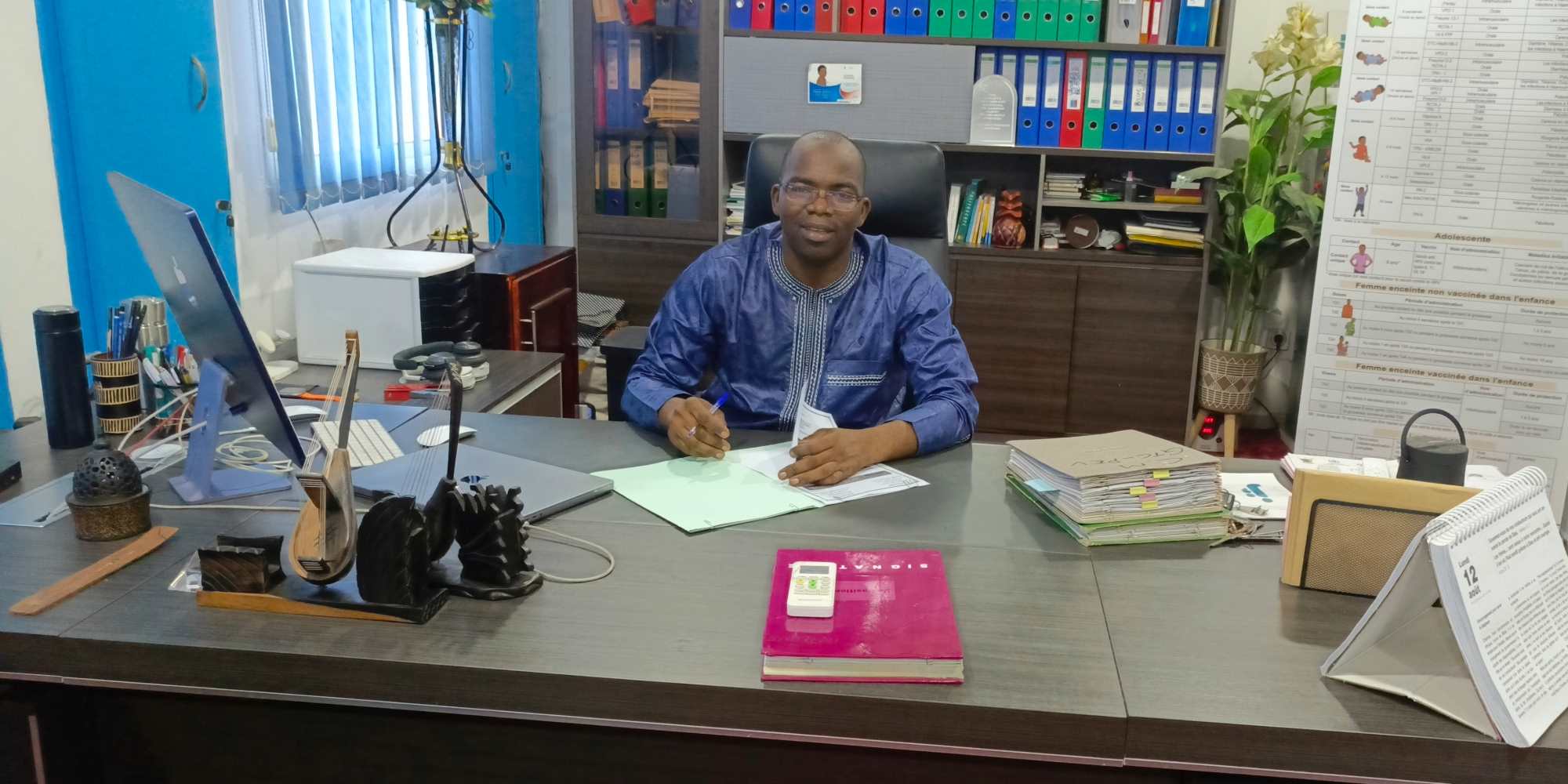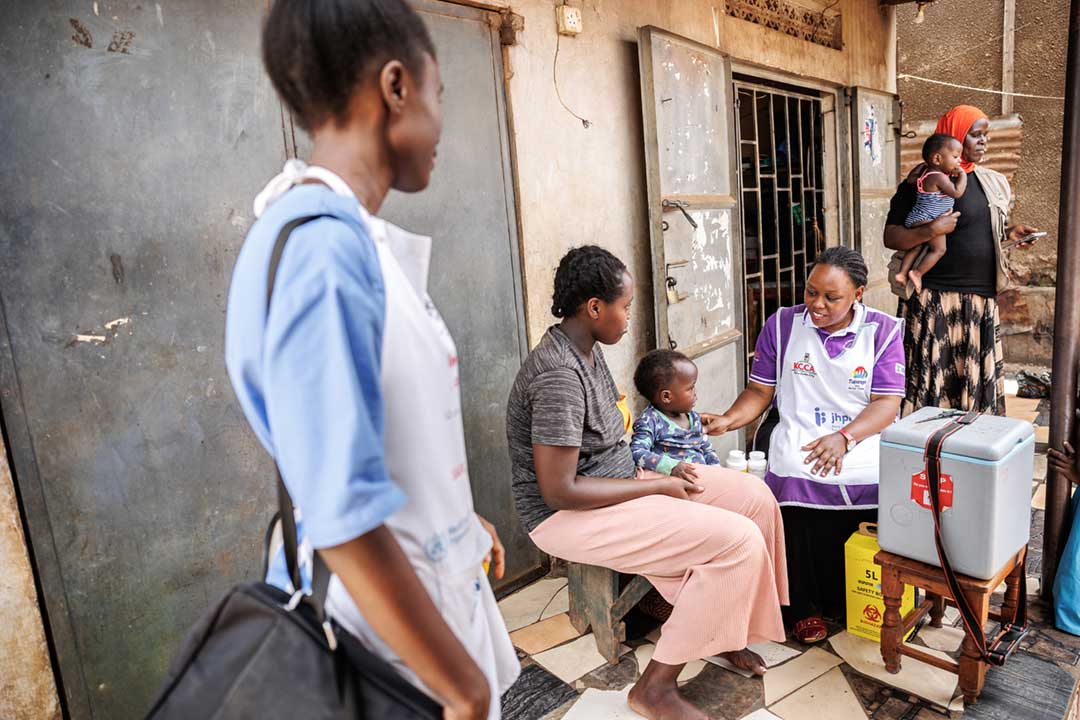Mongolia’s vaccination drive in the dead of winter
Mongolia’s health workers are vaccinating the country’s children ahead of the upcoming winter flu season.
- 9 December 2022
- 4 min read
- by Anand Tumurtogoo

Health workers Enkhtuya Kherlen and Mairaguli Kibekie are administering flu vaccines to children at school No.109 in Mongolia capital Ulaanbaatar's Nalaikh district. The kids huddle together and wait in orderly fashion for their turn to get a shot. A few children cry as they receive the shot, but they are relieved when it's over.
The school's doctor, Munkhdelgermaa Gurjav, arranges the space and determines how many children will receive the vaccine. She is also the main person responsible for educating the parents on the importance of vaccines and gets consent from parents to vaccinate the children.
“We can trace back population growth in Mongolia to the mass immunisation of Mongolians against preventable diseases. Now we have a rich history of trusting vaccines, and as a result, we have eradicated diseases that plagued our people within our lifetime.”

Credit: Anand Tumutogoo
"Out of 950 children, 80% of parents agreed that their children should receive flu shots and, in some instances, parents have even come to the school to get their own vaccine," Dr Gurjav says.
"I have administered all vaccines to the people of Nalaikh for five years and we have never run out of vaccines or found it difficult to administer them," Kerlen recalls.
Walking in the cold and trekking over dirt roads in their district is the most difficult challenge Kherlen and Kibekie face. Both Nalaikh residents, they have witnessed the district's ups and downs over the years.
Before the 1990 democratic election, Nalaikh was a thriving mining town, but when the collapse of Soviet Russia led to the withdrawal of Russian support, the country's economy faltered. It became difficult for the country to maintain basic infrastructure and provide adequate work for people – Nalaikh district was no exception. Nonetheless, the country maintained its vaccinations with a few dips early in the 1990s, and eventually resumed administering vaccines to people in most areas of the country.
Vaccinations for children have consistently exceeded 90% in the period 2011 to 2020. According to the health ministry, the country has managed to vaccinate up to 99% of infants aged two to four months every year, only slightly dipping down to 96% in 2020 due to COVID-19 lockdowns.
Have you read?
Mongolia has a long history of trusting vaccines, according to experts such as Batbayar Ochirbat, advisor to Mongolia's health minister.
"We can trace back population growth in Mongolia to the mass immunisation of Mongolians against preventable diseases," says Ochirbat. "Now we have a rich history of trusting vaccines, and as a result, we have eradicated diseases that plagued our people within our lifetime."
Mongolia's vaccination history begins in 1923, with smallpox immunisation. Mongolia produced its smallpox vaccine in 1933 and immunised 186,800 people. The country recorded its last case of smallpox in 1938, 42 years before the disease was declared globally eradicated.
In 1975, a survey published in the Journal of Hygiene, Epidemiology, Microbiology, and Immunology demonstrated how Mongolia consistently immunised its children throughout the country.

Credit: Anand Tumutogoo
Mongolia has increased the scope of vaccinations against all types of diseases since 2001, thanks to the President of Mongolia's initiative. Vaccines against diphtheria, pertussis, tetanus, hepatitis B virus, and Hib, for example, were gradually introduced in 2005. Since 2009, a measles, mumps, and rubella vaccine has been added to the National Mandatory Immunisation Schedule.
Mongolian youths like 16-year-old Uuganbayar Sainbileg, who sees the benefits of getting vaccinated every year, are the winners of this vaccination drive.
"Winter is a time when there are a lot of diseases, and vaccines help people not get sick, and my parents always encourage me to get vaccines to keep my immune system strong."
Kherlen and Kibekie will spend the entire day at school immunising teachers and students, both dreading and looking forward to going out in the cold for house immunisations later in the winter.
More from Anand Tumurtogoo
Recommended for you





